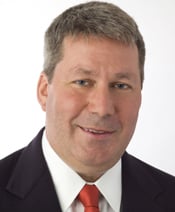 |
| Martin Shkreli |
Who's tired of talking about drug prices? Many pharma types would raise their hands at that question. It was already a sore subject, what with Gilead Sciences' ($GILD) infamous $1,000-per-pill hepatitis C treatment and a gaggle of six-figure prices on new cancer therapies. But the pain grew this fall, when the now-former CEO of Turing Pharmaceuticals Martin Shkreli unapologetically jacked up the price of a 62-year-old drug by 5,000%-plus--to $750 per pill from $13.50.
Drug prices have been riding the airwaves and starring in headlines ever since, including here at FiercePharma. Unfortunately for those of you who answered the above question in the affirmative, that's going to continue into 2016.
The year will kick off with congressional hearings featuring Shkreli and his fellow price-hike exemplar, Valeant ($VRX) CEO J. Michael Pearson. The presidential primaries are likely to keep the argument alive into the spring. Then, in the summer, the Department of Health and Human Services is set to publish a pricing report. But it's not only politicians and government officials who will be dogging pharma on drug prices; drugmakers will get scrutiny from all sides.
 |
| Valeant CEO J. Michael Pearson |
Payers will continue pressing for concessions, particularly in areas where several similar meds are competing for share, and those negotiations will make headlines. Pharmacy benefits managers like to talk about their "tough decisions" and pricing challenges; Express Scripts ($ESRX) has a blog, and CVS Health ($CVS) execs have published in medical journals.
More doctors will speak up as well, joining oncologists from MD Anderson Cancer Center and Memorial Sloan Kettering Cancer Center, and, now, neuromuscular specialists who are urging reasonable pricing on a forthcoming rare-disease drug, Firdapse, from Catalyst Pharmaceuticals.
The pricing debate has legs now, and it will keep on walking. The gripes might not always be legitimate, either. But regardless, drugmakers need to address the issue themselves, and directly. Big Pharma held back in the fall as the bad news swelled, but saying nothing was the wrong approach. As biopharma chemist and blogger Derek Lowe said of Shkreli then, "The problem is that silence gives consent. People will say 'well, they're not saying anything against him, so they must be with him.' Staying silent looks like you're OK with it."
More CEOs have stepped up since then to denounce Shkreli's antics, more head-on conversation will need to follow in 2016. As politicians continue their assault, pharma needs to keep reminding consumers and physicians about the industry's strong points--innovation, R&D, awareness and disease support campaigns. Keep tackling the issues raised by the media through marketing, corporate PR, CEO speeches and at conferences.
Some transparency about pricing decisions--and dare we say it, some pricing restraint--wouldn't hurt either.
Special Reports: 10 big brands keep pumping out big bucks, with a little help from price hikes | The top 10 most expensive drugs of 2013